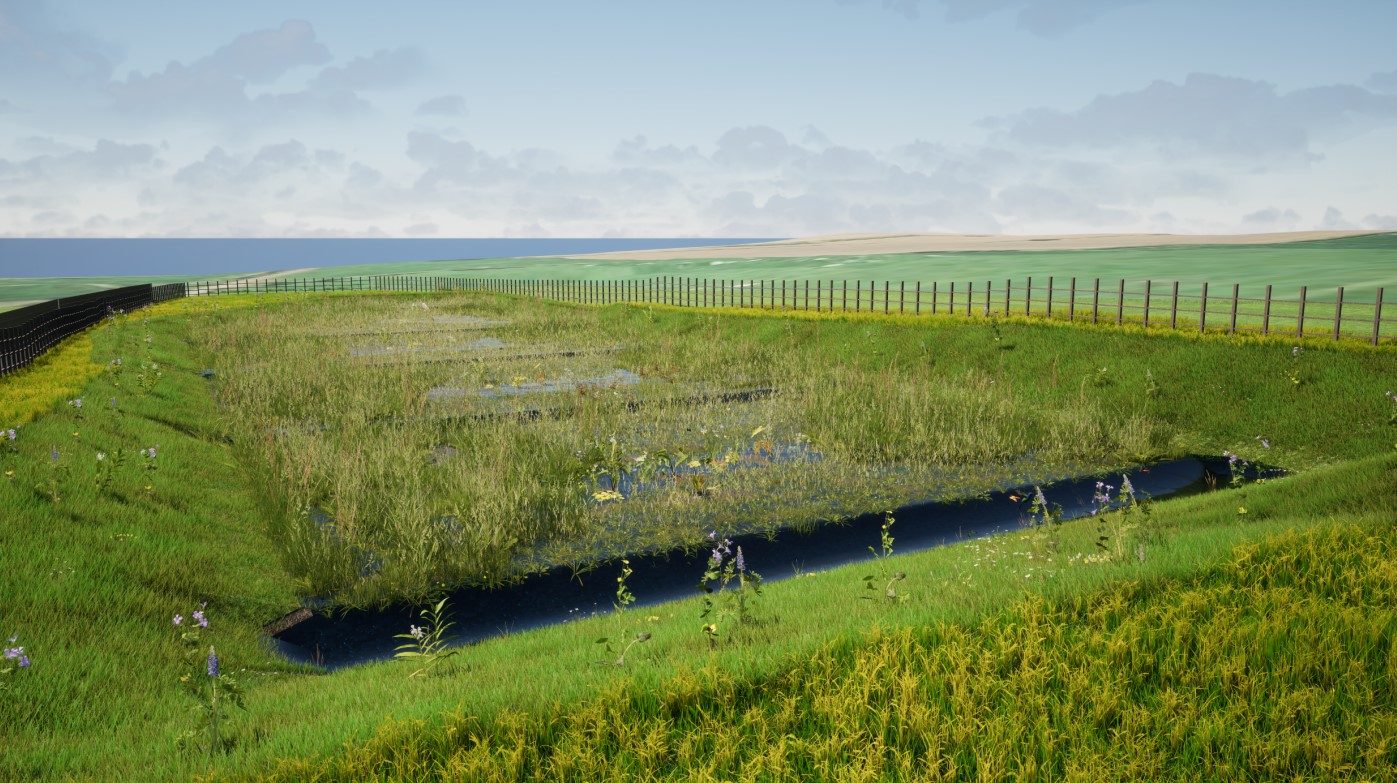Planning approved for wetland at Yorkshire Water’s Bellerby treatment works

5/16/2025
Yorkshire Water is set to construct a new wetland south of its existing wastewater treatment works in Bellerby, North Yorkshire, after planning was approved by North Yorkshire Council.
The £1.4m Integrated Constructed Wetland (ICW), once completed, will use plants to naturally treat wastewater in a sustainable and environmentally friendly way, before the treated water is returned to Bellerby Beck – a tributary of the river Swale.
Yorkshire Water will be holding a drop-in session at Bellerby Memorial Hall on 10 June for customers to come along and find out more about the project plans.
The wetland will be planted with 14,000 wetland plants to help improve performance of the treatment works. The natural filtering process will improve the quality of water being returned to the environment, protecting the watercourse and wildlife, allowing them to thrive. The natural filtering process will improve the quality of water being returned to the environment.
Elizabeth Healey, project manager at Yorkshire Water, said: “This project will provide a range of benefits to the local environment once it is completed. The wetland plants will naturally treat the wastewater to improve water quality in Bellerby Beck and the plants will also provide wildlife diversity and help achieve a biodiversity net gain.
“We have constructed wetlands of this nature at other sites in Yorkshire and they have proved to be extremely successful in treating wastewater and reducing Phosphorus levels entering watercourses. We are focused on delivering low-carbon, nature-based solutions where possible across the region and we’re pleased to have received permission to begin this exciting project.”
The £1.4m investment in a new wetland at Bellerby wastewater treatment works, is part of Yorkshire Water’s £8.3bn investment in the region between 2025 and 2030 – the utility’s largest ever environmental investment.
Work at Bellerby will be completed by Mott MacDonald Bentley (MMB) and is expected to begin in summer 2025.
